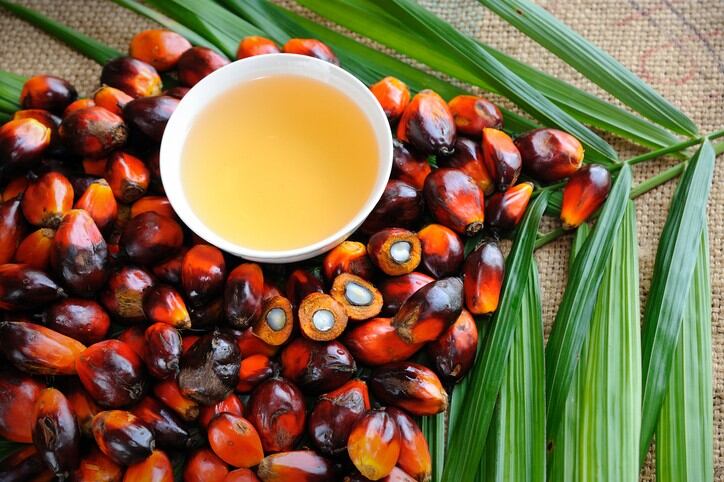As of Q1 2021, the Singapore-headquartered firm achieved 84% traceability to its plantations.
Traceability plays a key role in the company’s sustainability strategy which spreads across farmers (plantations), millers, refineries, and consumer goods manufacturers.
The company recently published its inaugural Social Impact Report detailing its progress on the Sorek plantation, in the province of Riau, Indonesia.
Helping smallholders
In Indonesia, Musim Mas mostly source fresh fruit bunches (FFB) from nucleus estates (70%), independent smallholders (26%) and scheme smallholders (3%). Nucleus estates are Musim Mas-owned plantations, scheme smallholders sell FFB direct to the company by contract, while independent smallholders sell their FFB to Musim Mas through agents.
Given that smallholders represent a significant proportion of its supply base, Musim Mas recognises the important of their role in its sustainability strategy.
Smallholder farmers are defined as individuals with farms smaller than 25 ha, and they cultivate around 40% of the total oil palm plantation area in Indonesia, which is expected to increase to 60% by 2030.
However, these farms only contribute about 35% to the total output.
Some of the reasons for the poorer yield include the lack of access to high yielding seeds.
They are also reluctant to replant ageing palms as it takes about four years for oil palms to produce FFB suitable for harvest. This leads to further land developments and deforestation as they try to increase their income.
Musim Mas is conducting smallholder training to upgrade their skills in sustainable farming and also provides farmers with quality seeds, fertilisers and other agricultural inputs.
These smallholders were able to produce an average of 18.75 MT FFB/ha in 2019, which is 22.24% higher than the average RSPO-certified smallholder.
Environmental impact
In addition, deforestation is another key focus in its sustainability strategy, with many smallholders continue to practice slash-and-burn methods to clear land.
So, Musim Mas conducted training in alternative land clearing methods such as using heavy machinery to crush, chip, pile and bury plant residues, and even providing these equipment. Farmers were also taught to convert waste into fertiliser instead of burning it.
“Traceability helps stop deforestation and ensures there are no exploitation in our supply chain. Traceability is not as an end to itself, but as a tool to achieve something more,” said Olivier Tichit, director of sustainable supply chain at Musim Mas.
He added that there are many smallholders in Indonesia which makes traceability a challenge.
“Smallholders are independent, which means that they might be in your supply chain today, out tomorrow, and back again the day after tomorrow,
“Traceability is usually a snapshot of the supply chain, meaning it is limited to analysing the past. We need to think better how we use traceability, and how we can base it on risk evaluation.”
Musim Mas uses a risk-based approach to map villages through collecting farmers data, and identify at-risk villages. In Indonesia, Musim Mas has 14 plantations and 17 mills.
“We continue to develop tools that will allow us to focus on the farm level,” Tichit added.

